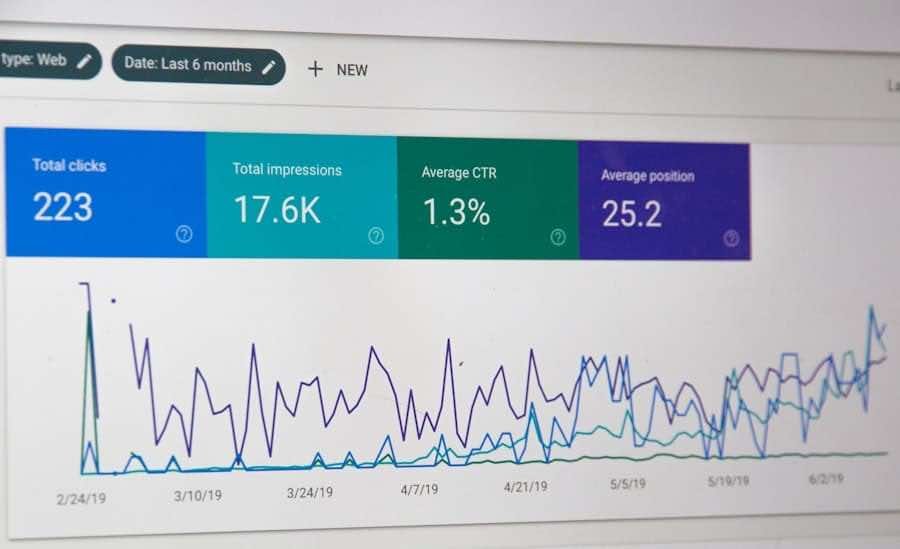In an increasingly interconnected world, the concept of digital sovereignty has emerged as a critical consideration for businesses navigating the complexities of the digital landscape. Digital sovereignty refers to the ability of individuals, organisations, and nations to control their own digital data and infrastructure, ensuring that they can operate independently and securely in the digital realm. As businesses become more reliant on digital technologies, the implications of digital sovereignty extend beyond mere data management; they encompass issues of privacy, security, and compliance with local regulations.
The rise of cloud computing, artificial intelligence, and big data analytics has further complicated the landscape, necessitating a deeper understanding of how digital sovereignty can be effectively integrated into business strategies. The importance of digital sovereignty is underscored by the growing concerns surrounding data breaches, cyber threats, and the potential misuse of personal information. Companies are increasingly recognising that their digital assets are not just tools for operational efficiency but also critical components of their brand reputation and customer trust.
As such, businesses must navigate a myriad of challenges to ensure that they maintain control over their digital environments while adhering to the legal frameworks that govern data protection and privacy. This article delves into the multifaceted nature of digital sovereignty in business, exploring its significance, associated challenges, and strategies for successful implementation.
Summary
- Digital sovereignty in business refers to the ability of a company to have control and ownership over its digital assets and data.
- Understanding the concept of digital sovereignty involves recognising the importance of data protection, privacy, and security in the digital age.
- Digital sovereignty is crucial for businesses as it helps in protecting sensitive information, maintaining competitive advantage, and complying with regulations.
- Challenges and risks associated with digital sovereignty include cyber threats, data breaches, and compliance with different data protection laws across borders.
- Strategies for achieving digital sovereignty in business include implementing robust cybersecurity measures, data encryption, and compliance with data protection regulations.
Understanding the Concept of Digital Sovereignty
Digital sovereignty encompasses a broad spectrum of ideas related to data ownership, governance, and control. At its core, it is about ensuring that data generated within a specific jurisdiction remains under the authority of that jurisdiction’s laws and regulations. This concept has gained traction as governments and organisations grapple with the implications of global data flows and the dominance of major tech companies that often operate across multiple jurisdictions.
For instance, the European Union’s General Data Protection Regulation (GDPR) exemplifies an effort to assert digital sovereignty by establishing strict guidelines for how personal data is collected, processed, and stored within its member states. Moreover, digital sovereignty is not solely a legal or regulatory issue; it also encompasses technological considerations. Businesses must evaluate their IT infrastructure, data storage solutions, and cybersecurity measures to ensure they align with their sovereignty goals.
This may involve investing in local data centres or adopting technologies that facilitate greater control over data processing. The interplay between technology and governance is crucial in shaping how businesses approach digital sovereignty, as they must balance operational efficiency with compliance and security.
Importance of Digital Sovereignty for Businesses

The significance of digital sovereignty for businesses cannot be overstated. In an era where data is often referred to as the new oil, companies must recognise that their ability to harness and protect this resource directly impacts their competitive advantage. By asserting control over their digital assets, businesses can enhance their resilience against cyber threats and mitigate risks associated with data breaches.
For example, companies that prioritise digital sovereignty are better positioned to respond swiftly to incidents involving data leaks or unauthorised access, thereby safeguarding their reputation and maintaining customer trust. Furthermore, digital sovereignty plays a pivotal role in fostering innovation. When businesses have confidence in their ability to manage and protect their data, they are more likely to invest in new technologies and explore novel business models.
This is particularly relevant in sectors such as finance and healthcare, where sensitive data handling is paramount. By establishing robust frameworks for data governance and security, organisations can create an environment conducive to experimentation and growth while ensuring compliance with regulatory requirements.
Challenges and Risks Associated with Digital Sovereignty
Despite its importance, achieving digital sovereignty presents a myriad of challenges for businesses. One of the primary obstacles is the complexity of navigating diverse regulatory landscapes across different jurisdictions. Companies operating internationally must contend with varying laws regarding data protection, privacy rights, and cross-border data transfers.
For instance, while GDPR imposes stringent requirements on data handling within the EU, other regions may have less rigorous standards. This disparity can create confusion and compliance risks for businesses seeking to maintain sovereignty over their digital assets. Additionally, the rapid pace of technological advancement poses significant risks to digital sovereignty.
As organisations increasingly adopt cloud services and third-party applications, they may inadvertently relinquish control over their data. The reliance on external providers can lead to vulnerabilities if those providers do not adhere to robust security practices or if they are subject to different regulatory frameworks. Businesses must carefully assess their partnerships and ensure that they have adequate safeguards in place to protect their data from potential breaches or misuse.
Strategies for Achieving Digital Sovereignty in Business
To effectively achieve digital sovereignty, businesses must adopt a multifaceted approach that encompasses both strategic planning and operational execution. One key strategy involves conducting a comprehensive assessment of existing data management practices. This includes identifying where data is stored, how it is processed, and who has access to it.
By gaining a clear understanding of their data landscape, organisations can pinpoint areas where they may be vulnerable or non-compliant with local regulations. Investing in local infrastructure is another critical strategy for enhancing digital sovereignty. By establishing data centres within the jurisdictions where they operate, businesses can ensure that their data remains subject to local laws and regulations.
This not only helps mitigate compliance risks but also enhances performance by reducing latency associated with cross-border data transfers. Additionally, organisations should consider implementing robust cybersecurity measures, such as encryption and access controls, to safeguard their digital assets from potential threats.
Legal and Regulatory Considerations for Digital Sovereignty

Navigating the legal landscape surrounding digital sovereignty requires a nuanced understanding of both domestic and international regulations. Businesses must stay informed about evolving laws related to data protection and privacy rights in the jurisdictions where they operate. For instance, the California Consumer Privacy Act (CCPA) imposes specific requirements on businesses regarding consumer data collection and usage within California, while similar regulations are emerging in other regions worldwide.
Moreover, companies must be aware of international agreements that may impact their ability to maintain digital sovereignty. The EU-U.S. Privacy Shield framework was designed to facilitate transatlantic data transfers while ensuring adequate protection for personal data; however, its invalidation by the European Court of Justice in 2020 highlighted the complexities involved in cross-border data flows.
Businesses must remain vigilant in monitoring such developments and adapt their strategies accordingly to ensure compliance while safeguarding their digital assets.
Impact of Digital Sovereignty on Global Business Operations
The implications of digital sovereignty extend far beyond individual organisations; they have profound effects on global business operations as a whole. As companies increasingly prioritise local control over their digital assets, there is a growing trend towards regionalisation in data management practices. This shift may lead to the establishment of more localised supply chains and partnerships as businesses seek to comply with local regulations while maintaining operational efficiency.
Furthermore, the emphasis on digital sovereignty can drive innovation in technology solutions designed to enhance data governance and security. As organisations invest in tools that facilitate compliance with local laws while enabling secure data sharing across borders, new market opportunities will emerge for technology providers specialising in these areas. This evolution will likely reshape the competitive landscape as businesses seek out partners that align with their digital sovereignty goals.
Future Trends and Developments in Digital Sovereignty for Businesses
Looking ahead, several trends are poised to shape the future of digital sovereignty for businesses. One notable development is the increasing adoption of decentralised technologies such as blockchain, which offer enhanced transparency and control over data transactions. By leveraging these technologies, organisations can establish more secure frameworks for managing their digital assets while ensuring compliance with local regulations.
Additionally, as public awareness around data privacy continues to grow, consumers are becoming more discerning about how their information is handled by businesses. This shift is likely to drive demand for greater transparency in data practices and increased accountability from organisations regarding their data management strategies. Companies that proactively embrace these changes will not only enhance their reputation but also position themselves as leaders in the evolving landscape of digital sovereignty.
In conclusion, as businesses navigate the complexities of an increasingly digitised world, understanding and implementing strategies related to digital sovereignty will be paramount for success. The interplay between technology, regulation, and consumer expectations will continue to evolve, necessitating ongoing adaptation and innovation from organisations committed to maintaining control over their digital environments.
Digital sovereignty in business is a crucial concept that is gaining traction in today’s global economy. As discussed in a recent article on market size analysis of online transcription services, companies are increasingly recognising the importance of maintaining control over their digital assets and data. This is particularly relevant in light of events such as the Paris 2024 Olympics, where special events and festivals will undoubtedly attract a large online audience. Companies like HSBC are taking proactive steps to ensure their digital sovereignty is protected, as highlighted in a case study on HSBC. By understanding and implementing strategies to safeguard their digital presence, businesses can navigate the complexities of the digital landscape with confidence and resilience.
FAQs
What is digital sovereignty in business?
Digital sovereignty in business refers to the concept of a company having control and ownership over its digital data, infrastructure, and technology. It involves ensuring that a business has the autonomy to make decisions about its digital assets without being overly dependent on external entities.
Why is digital sovereignty important for businesses?
Digital sovereignty is important for businesses as it allows them to protect their sensitive data, maintain control over their technology infrastructure, and reduce their reliance on external providers. It also enables businesses to comply with data protection regulations and safeguard their intellectual property.
How can businesses achieve digital sovereignty?
Businesses can achieve digital sovereignty by implementing robust data security measures, investing in secure and resilient technology infrastructure, and reducing their dependence on third-party providers for critical digital services. They can also establish clear policies and procedures for managing and protecting their digital assets.
What are the potential challenges of achieving digital sovereignty in business?
Challenges in achieving digital sovereignty in business may include the complexity of managing and securing digital data, the need for significant investment in technology infrastructure, and the potential for disruption to existing business processes. Additionally, businesses may face resistance from external providers and regulatory hurdles.
How does digital sovereignty impact international business operations?
Digital sovereignty can impact international business operations by influencing data storage and processing requirements, compliance with different countries’ data protection laws, and the ability to maintain control over digital assets across borders. It can also affect the choice of technology partners and the resilience of digital infrastructure in different regions.
